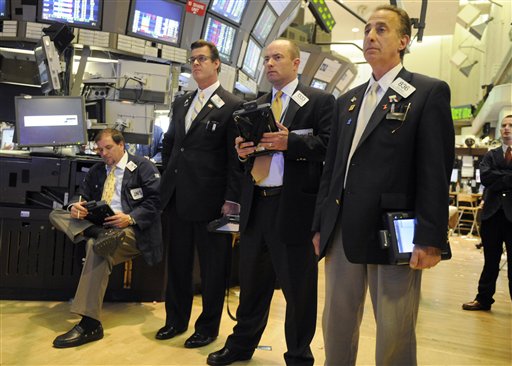Ninety minutes before the end of the trading day today, the U.S. stock market almost melted down The Dow Jones Industrial Average dropped nearly 1,000 points. The market regained ground before the end, like a giant 747 narrowly averting a crash landing, but the questions of the day are: What happened? And What does it mean?
At this point no one knows why. Some say it was sudden burst of worries about Greece’s debt and the increasing possibility of a default that might cause a run by global investors. Others point to a “trading error.” Giant high-speed computers generate millions of trade based on instructions embedded in computer programs designed to move fast enough to beat everyone else. So when there’s a glitch in one of them it can immediately spread to all the other programs designed to move just as fast. Some say it was an erroneous trade entered by someone at a big Wall Street bank who mistyped an order to sell a large block of stock, and that the big drop in that stock’s price (Procter & Gamble?) triggered “sell” orders across the market.
Regardless of why it happened, it’s further evidence that the nation’s and the world’s capital markets have become a vast out-of-control casino in which fortunes can be made or lost in an instant — which would be fine except for the fact that most of us have put our life savings there. Pension funds, mutual funds, school endowments — the value of all of this depends on a mechanism that can lose a trillion dollars in minutes without anyone having a clear idea why. So much of the market now depends on computer programs and mathematical models that no one fully understands, so much trading is in the hands of a few people whose fat thumbs or momentary carelessness might sink the economy, so much of global wealth now depends on who can move their money quickest at the slightest provocation — that we are toying with financial disaster every day. The luck or foolishness of a few traders, and inside knowledge and information that some possess and others don’t, combined with ultra high-speed computers, put us all at the whim of a system whose risk is way out of proportion to any public benefits.
The financial reforms being considered on Capitol Hill are steps in the right direction. But the “systemic risk” now embedded in our capital markets is higher than ever, and will require far greater understanding and vigilance than now being considered.

